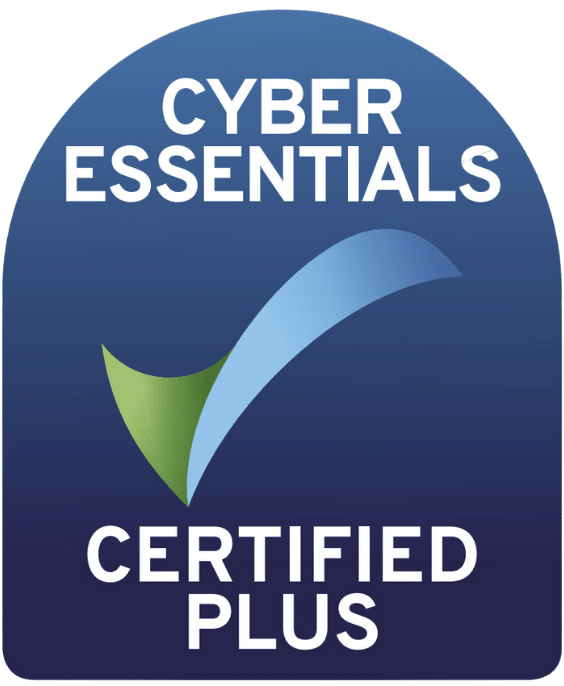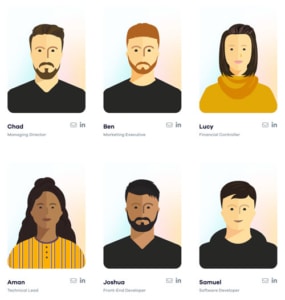Overcoming the challenges of the 2023 HAF Programme
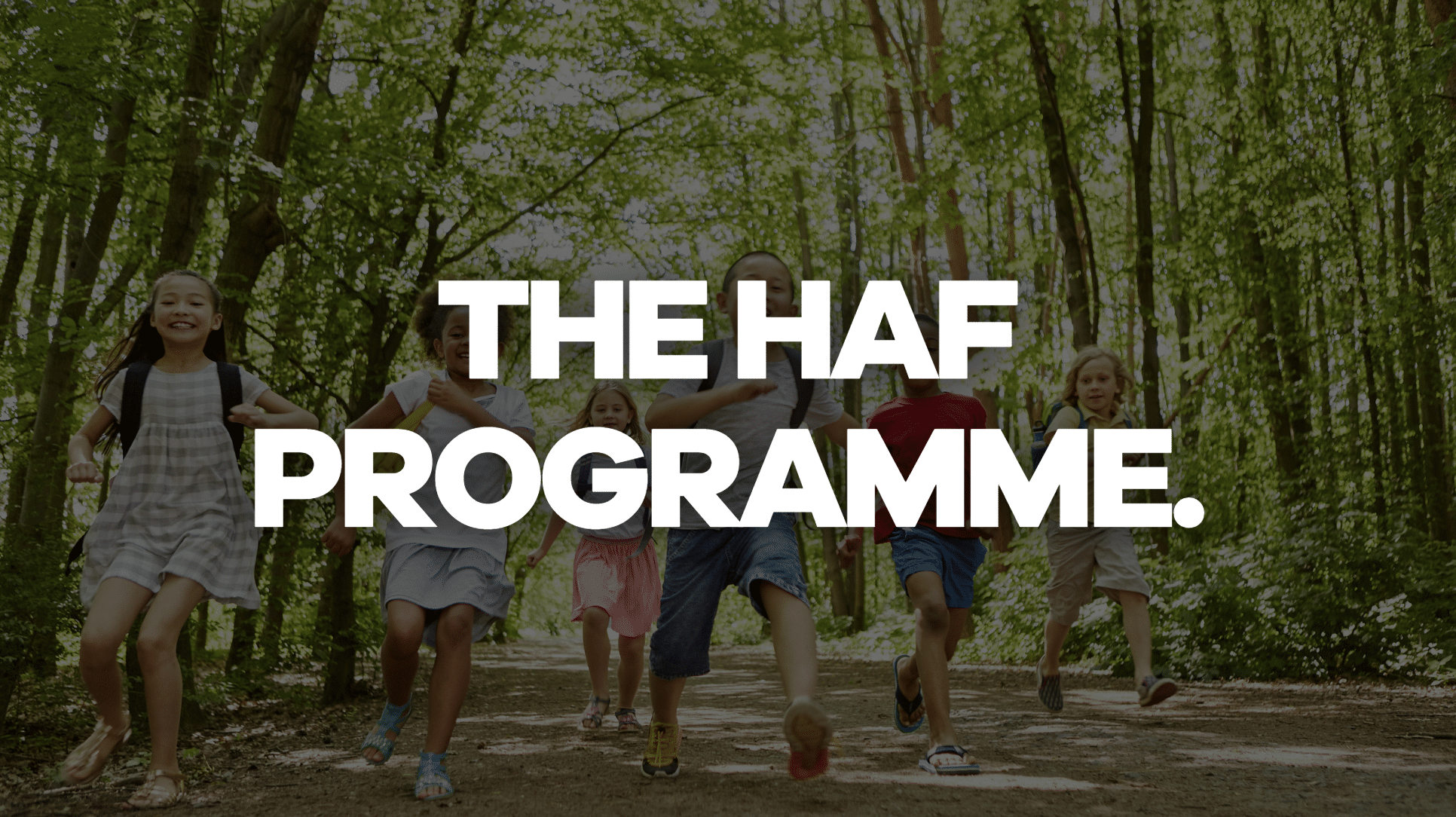
The HAF Programme
Before diving into the challenges associated with programme delivery, it's only fitting to highlight a few of the fantastic things HAF has achieved — from reaching 730,000 children in 2021 to providing 5.4 million HAF days in 2023.
To put these achievements into context, before 2021, 70% (511,000) of those children had yet to attend a free holiday club, highlighting the scale of the work being done to increase the programme's reach.
This is no mean feat — especially given that children who attended HAF were 26% more likely to participate in outdoor exercise & 77% said they felt more confident because of attending.
With all of this in mind, we want to give a massive shout-out to the fantastic people involved with HAF.
Now, onto the research …
HAF Programme research
According to the DfE, in 2021 (the latest available dataset), the programme reached 29% of children eligible for free school meals.
This highlights that there is still work we can do to improve the effectiveness & reach of the programme.
That being said, through feedback from our HAF community & by collating findings from 4 independent research studies involving over 120 councils, we've identified 3 common challenges that, if addressed, will help future-proof the provision, increase the reach of the programme & improve its delivery.
With this in mind, the purpose of this blog is 3-fold:
- First, we'll share findings from 4 research projects & collate a list of common challenges
- Second, we'll share how councils are overcoming these challenges
- Lastly, we'll give you exclusive access to a pilot offering of our HAF Booking Service to help you address some of challenges outlined in this blog
HAF Programme challenges
In this report for the DfE, researchers from Ecorys conducted interviews with 10 local authorities & collated 116 responses to a survey sent to each of the 151 authorities involved in the programme.
They highlighted the following challenges:
- A lack of awareness of the full provision & the need for more effective MARCOM strategies to increase uptake & reduce no-shows
- Issues with recruitment, retention & training due to funding uncertainty
- The need for more signposting (in-person & digital)
- Difficulties in managing eligibility processes
- Information management & reporting
- Planning for the future
Likewise, when analysing programme delivery at a local level, The National Institute For Health Research found that:
- People aren't aware of the full HAF offering — this goes some way to explaining why the programme reached only 29% of eligible children in 2021.
- Without a single point of access, parents found it challenging to identify & book suitable activities.
- More could be done to support & refer families to improve food security.
- There is a need to improve Information management & reporting.
Meanwhile, Newham Council found these to be the five most significant challenges faced by HAF Programmes:
- Admin burdens
- Finding effective ways to publicise the programme
- A high number of no-shows, leading to wasted capacity
- Not enough time to procure providers & mobilise programmes
- Sessions not being long enough for families to go to work
And finally, in 2023, researchers from Northumbria University conducted a series of interviews with HAF coordinators from 3 local authorities.
Based on the information collected, they detailed the following challenges:
- The complexity & scale of stakeholder engagement & co-ordination
- The HAF eligibility criteria (too restrictive, which is causing reduced uptake)
- Difficulty in managing resource allocation & other administrative tasks
- The 4:4:4 delivery model needs further clarification & more support is needed to facilitate it
- Long-term planning & community integration
The above findings have clear overlaps & centre around similar challenges. Therefore, to keep things focussed, we've categorised them into three key areas for improvement:
- Improving awareness of the HAF provision (including additional support)
- Improving service access & the user experience
- Improving administration, reporting & stakeholder management
Now that we’ve outlined some of the challenges of the programme let's look at how you can overcome them.
Recommendations (from research) on how to overcome these HAF challenges
Improving awareness of the HAF provision (including additional support) to increase reach:
This report suggests that to improve awareness of the HAF provision & better signpost additional support, new in-person & online tactics need to be deployed.
Firstly, LAs are encouraged to provide drop-in days where parents can meet with staff & external agencies to get additional advice & support.
Importantly, this encourages a move away from the pick-up/drop-off model & helps build trusted relationships.
On digital channels, LAs are advised to:
- Provide a centralised access point for all HAF information, registration & booking.
- Provide further advice & signposting for other HAF services, nutritional advice, employment advice, food banks & welfare support within this central repository to extend the impact of the programme.
- Use automation tools to disseminate wider support information directly to parents.
Ecorys offers the following recommendations for increasing engagement with the programme:
- Make the programme more accessible & inclusive for children with SEND, ensuring everyone has the opportunity to participate fully in the activities offered.
- Broaden the range of activities to cater to a wider range of interests & ages.
- Strengthen partnerships & collaborations with schools, community organisations & other stakeholders to enhance programme delivery & reach more eligible families.
- Increase marketing & communications efforts around the primary & secondary benefits of the programme to inform, educate & encourage participation.
- Improve data collection, sharing & analysis among LAs, providers & stakeholders to better understand the programme's reach & see where councils can do more to target eligible children & vulnerable groups.
Likewise, Newham council say that to increase the reach of the HAF scheme, councils could:
- Adopt a new approach to commissioning that would increase mobilisation periods for providers, allowing for a broader range of activities, trips & workshops.
- Extend session durations to support working families & reduce the need for paid childcare.
- Improve booking processes to facilitate easier management of bookings & cancellations to improve access & reduce no-shows.
- Conduct more targeted marketing aimed at families eligible for FSM to maximise uptake in the target population.
Meanwhile, researchers from Northumbria University propose that the DfE consider loosening the eligibility criteria to reduce stigmatisation & facilitate attendance.
Improving service access & the user experience:
As well as improving the reach of the programme, research suggests that focus should be placed on delivering better access to activities & improving the end-user experience.
In the most part, the research is united on how we can achieve this.
As alluded to above, the gold-standard HAF delivery model includes the creation of an accessible, centralised access point for all HAF-related information, registration, booking & signposting to additional help.
This involves the creation of a joined-up, end-to-end experience that includes:
- Easy access to information
- Simple registration & booking processes
- Simple self-service options
- Real-time two-way communication channels
- Multi-channel access &
- Tailored experiences based on circumstance
For example, Ecorys suggests that some LAs felt that booking far in advance required planning that did not suit more chaotic households.
To overcome this, we’ve worked with our community to develop functionality that allows staff to release slots gradually throughout the week. This enables families to access spaces closer to the time of the session.
Ecorys also highlights that families with a low level of English may need help accessing the service.
Again, one way our community has overcome this barrier is to build Google Translate & other accessibility-focused tools into the HAF booking journey.
Up until now, our focus has been solely on digital channels. However, it’s important to note that a recurring theme within the research is that to reach the most disadvantaged families, who tend to have low digital literacy & limited access to Wi-Fi, a multi-channel access offer is vital.
Hence, our community uses their HAF Booking Service to block out slots for families who might need help navigating the online booking system. They also offer in-person or over-the-phone bookings to maximise access opportunities.
Improving administration, reporting & stakeholder management:
To deliver on what we've alluded to above, the collection, analysis & dissemination of data between stakeholders is critical.
According to the DfE, the collection of data like:
- The overall number of unique children who participated in your programme
- The overall number of unique children in receipt of FSM who participated in your programme
- The number & proportion of children who are in the primary school age range, the secondary school age range, & any children outside of those age ranges who attended the programme
- The number of children with SEND or additional needs who have participated in your programme &
- Feedback from participants, their families or carers …
Can be supplemented with additional information to identify who the HAF programme is reaching & monitor the long-term impacts on children who attend the programme.
Not only is this critical for ensuring the programme is set up to benefit eligible families, but it also informs long-term planning & provides evidence for the programme's expansion.
That being said, this enhanced reporting process needs to be made simple so as not to add to the already high workload of those involved with the programme.
To this end, researchers also recommend implementing systems & processes to help automate & streamline time-consuming admin processes like:
- Eligibility checking (both programme eligibility & fair usage monitoring)
- Activity creation, resource management, slot allocation & booking management
- Stakeholder co-ordination & ensuring a standardised service for all clubs
- Marketing & usage-based communications
HAF research side note
This blog briefly outlines a few ways your authority can overcome some of the most well-documented HAF challenges.
However, The NIHR School for Public Health Research is gathering information to develop a best practice framework for delivering the Holiday Activities and Food Programme.
So, if you're interested in learning more or getting involved in the study, we recommend checking out their work.
How our community uses booking technology to overcome HAF challenges
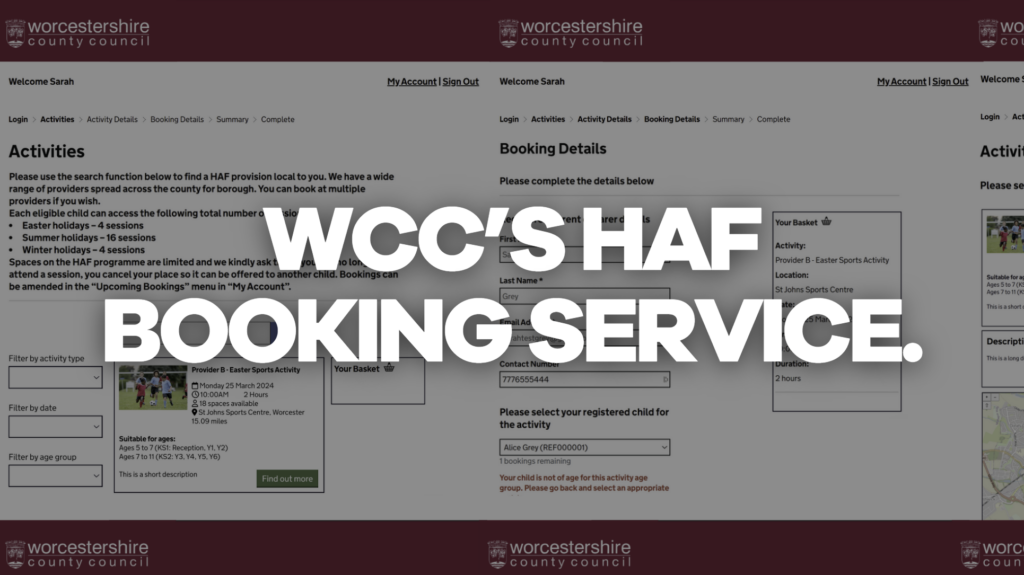
We’ve alluded to how the HAF community uses our HAF Booking System to address certain challenges. However, in this section, we'll explore this in a little more detail.
For context, we've worked with pioneering organisations like West Sussex County Council (WSCC), Dudley Metropolitan Borough Council (DMBC), Worcestershire County Council (WCC) & others to co-create a market-leading HAF Booking Service that:
- Automates & streamlines admin processes
- Provides a GDS-approved process for checking eligibility
- Delivers an improved experience for families, staff & providers
- Enables simple, end-to-end self-service
- Automates the mandatory reporting schedule
- Creates two-way comms channels & more
Let us explain …
Improving HAF administration, reporting & stakeholder management:
WSCC, DMBC & WCC use the product to manage eligibility workflows, credit allocations & booking limits with:
- A GDS-approved process for checking eligibility (both automated & manual approval options are widely used; this is based on preference)
- An upload feature that simplifies the migration of data on pre-approved accounts & users
- Booking rules & digitised HAF credit allocations/re-allocations that automate & fairly manage access to activities
They also use it to streamline other manual processes. For example, they:
- Generate automated push notifications like reminders, promotions & feedback to better inform families & reduce the workload of staff.
- Use AI-powered scheduling to streamline scheduling & resourcing across multiple locations, activity types & providers.
- Use the intuitive admin portal to quickly & easily manage & edit their provision in real-time.
To that effect, they also use the system to simplify information management, ensure compliance with GDPR & improve reporting. They do this by:
- Automating standardised data collection & validation
- Automating the mandatory reporting schedule (including the demographic data mentioned above)
- Collecting additional information at the point of registration/booking to make necessary arrangements for children with SEND
- Leveraging out-of-the-box KPI dashboards
- Accessing real-time attendee lists & calendar views
- Offering automated feedback channels
- Mapping information to specific user accounts
To simplify stakeholder management, our community uses a dedicated portal within their system to allow providers to create & manage activities in a standardised format.
Here, providers can:
- Create, modify or cancel their activities
- View bookings & attendance reports (24/7)
Note: Unlike council staff, providers only have permission to view their activities. This provides our community all the benefits of consolidating bookings on a single platform while protecting non-essential data.
Improving the user experience & increasing awareness of the HAF programme:
WSCC, DMBC & WCC use the system to enable end-to-end self-service.
Importantly, this means families have a centralised access point for all HAF information, registration & booking. Here, they can:
- Access the service in different languages
- Be assisted by in-built guidance messaging
- Book for multiple children at once
- Book various activities at once
- Declare & manage important information within their HAF Account
- See signposting to other services of interest
As mentioned above, some of our community have also implemented system rules around gradual slot releases & reserved allocations for offline channels to improve the user experience for different types of families.
Councils also use the system's (automated) two-way communication tools to promote the provision & keep families informed of any booking or session updates. Typically, they do this through push SMS/Email notifications from within the platform.
Again, this was a quick overview of how our other councils use our HAF Booking Service to improve programme delivery.
To see more on how West Sussex County Council, Worcestershire County Council, Dudley Metropolitan Borough Council & others use these features to improve the delivery of their programmes, click here.
Introducing our HAF Booking Service offer
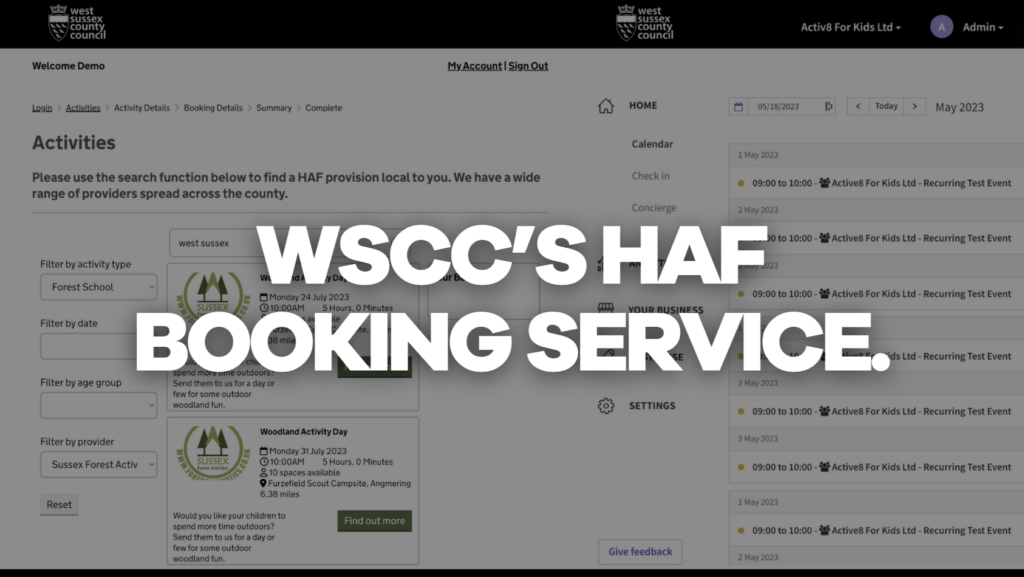
With DfE funding for HAF running up until 2025, we're offering you a pilot of our HAF Booking Service for the summer & winter holidays.
Our goal here is to:
- Help you address the challenges alluded to above
- Collect the data you need to inform long-term decision-making & justify budget allocations
As part of this reduced-price pilot, your stakeholders will have access to all of the platform's features, including a:
- GDS-approved eligibility workflow
- MyAccount portal with HAF credits & IDs
- End-to-end booking journey that is GDS-approved
- AI-powered scheduling engine
- Intuitive admin portal for staff & providers
- Notification service that enables automated (two-way) comms
- A reporting module & more
To see the the platform in action, click here.



